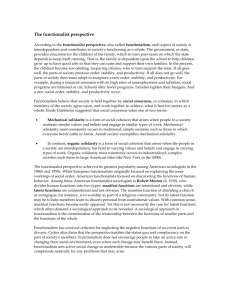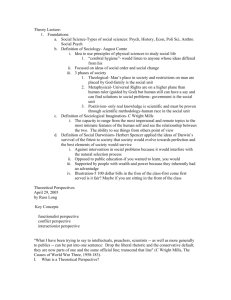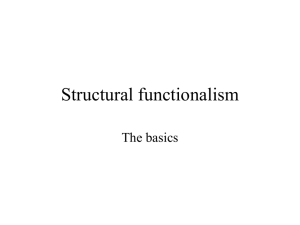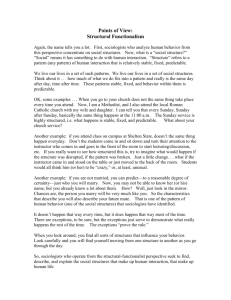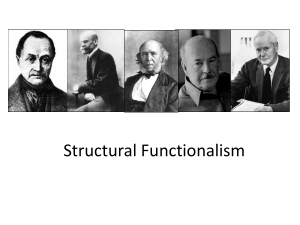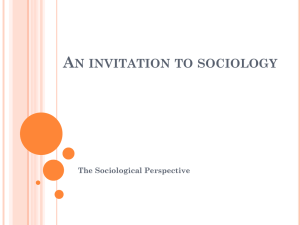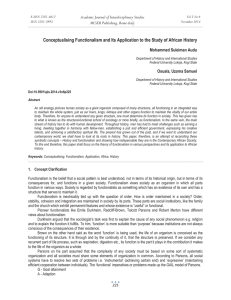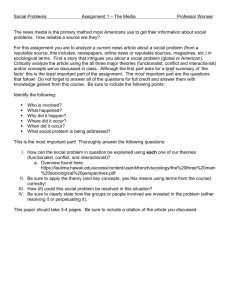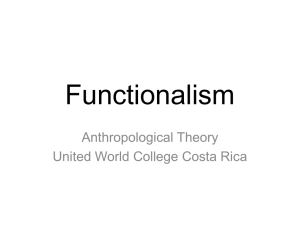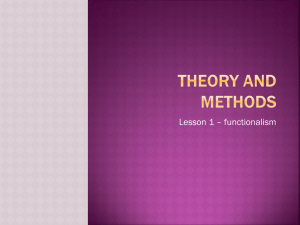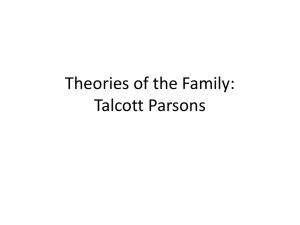The Functionalist Perspective According to the functionalist
advertisement
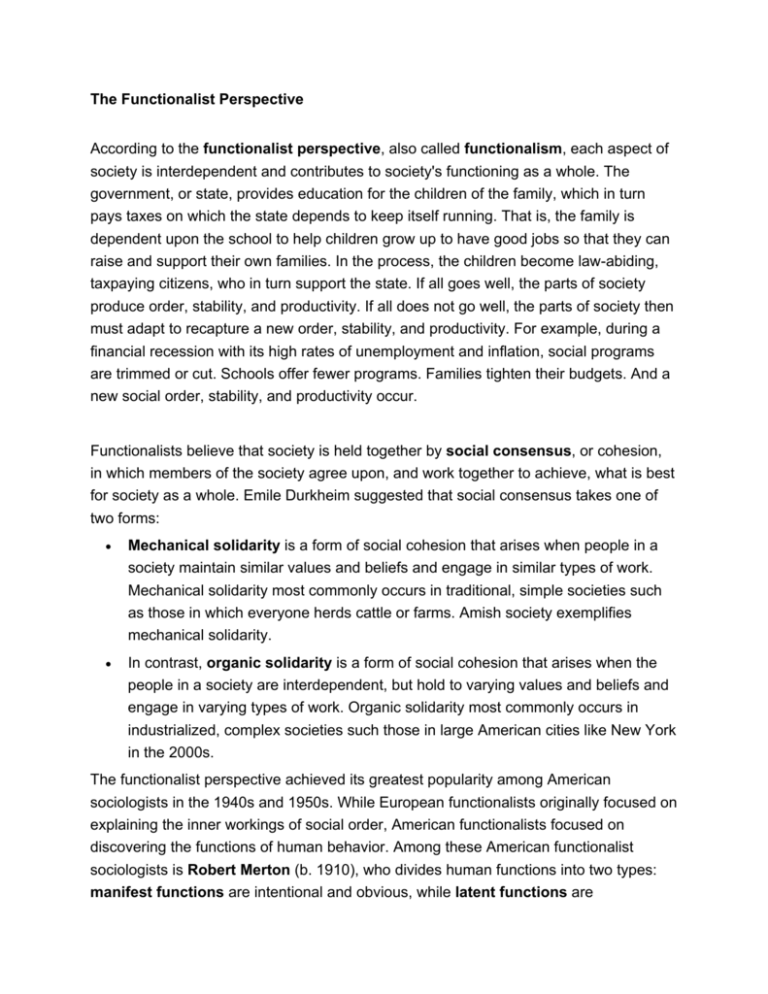
The Functionalist Perspective According to the functionalist perspective, also called functionalism, each aspect of society is interdependent and contributes to society's functioning as a whole. The government, or state, provides education for the children of the family, which in turn pays taxes on which the state depends to keep itself running. That is, the family is dependent upon the school to help children grow up to have good jobs so that they can raise and support their own families. In the process, the children become law-abiding, taxpaying citizens, who in turn support the state. If all goes well, the parts of society produce order, stability, and productivity. If all does not go well, the parts of society then must adapt to recapture a new order, stability, and productivity. For example, during a financial recession with its high rates of unemployment and inflation, social programs are trimmed or cut. Schools offer fewer programs. Families tighten their budgets. And a new social order, stability, and productivity occur. Functionalists believe that society is held together by social consensus, or cohesion, in which members of the society agree upon, and work together to achieve, what is best for society as a whole. Emile Durkheim suggested that social consensus takes one of two forms: Mechanical solidarity is a form of social cohesion that arises when people in a society maintain similar values and beliefs and engage in similar types of work. Mechanical solidarity most commonly occurs in traditional, simple societies such as those in which everyone herds cattle or farms. Amish society exemplifies mechanical solidarity. In contrast, organic solidarity is a form of social cohesion that arises when the people in a society are interdependent, but hold to varying values and beliefs and engage in varying types of work. Organic solidarity most commonly occurs in industrialized, complex societies such those in large American cities like New York in the 2000s. The functionalist perspective achieved its greatest popularity among American sociologists in the 1940s and 1950s. While European functionalists originally focused on explaining the inner workings of social order, American functionalists focused on discovering the functions of human behavior. Among these American functionalist sociologists is Robert Merton (b. 1910), who divides human functions into two types: manifest functions are intentional and obvious, while latent functions are unintentional and not obvious. The manifest function of attending a church or synagogue, for instance, is to worship as part of a religious community, but its latent function may be to help members learn to discern personal from institutional values. With common sense, manifest functions become easily apparent. Yet this is not necessarily the case for latent functions, which often demand a sociological approach to be revealed. A sociological approach in functionalism is the consideration of the relationship between the functions of smaller parts and the functions of the whole. Functionalism has received criticism for neglecting the negative functions of an event such as divorce. Critics also claim that the perspective justifies the status quo and complacency on the part of society's members. Functionalism does not encourage people to take an active role in changing their social environment, even when such change may benefit them. Instead, functionalism sees active social change as undesirable because the various parts of society will compensate naturally for any problems that may arise. CliffsNotes.com. Three Major Perspectives in Sociology. 31 Jan 2011 <http://www.cliffsnotes.com/study_guide/topicArticleId-26957,articleId-26837.html>.
